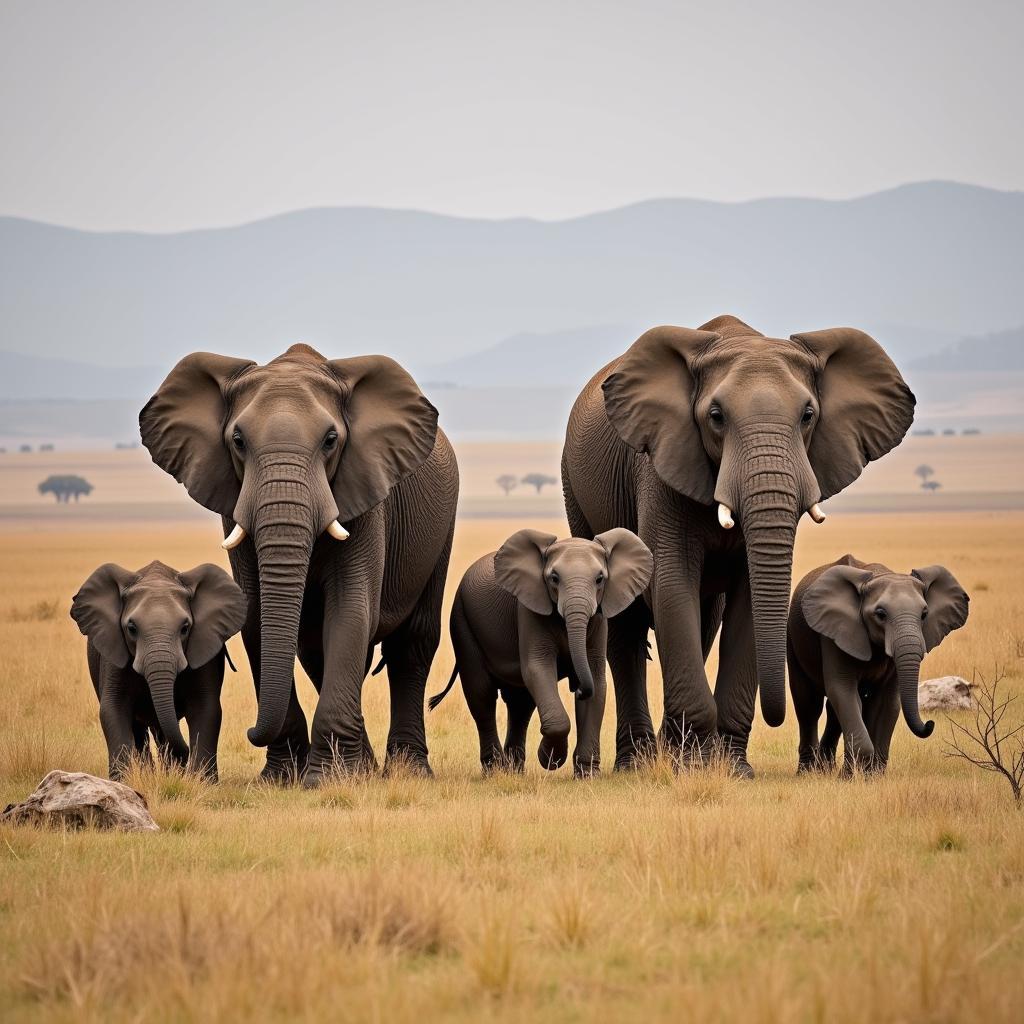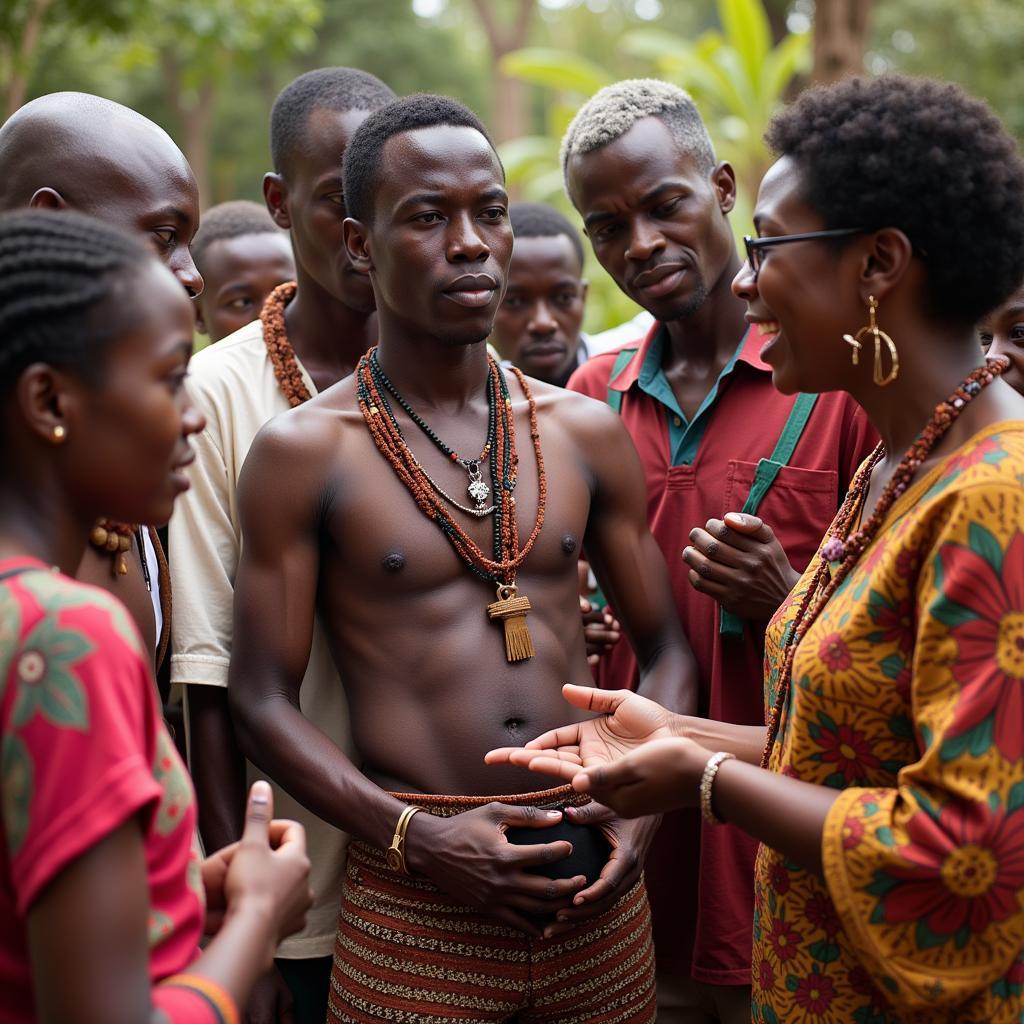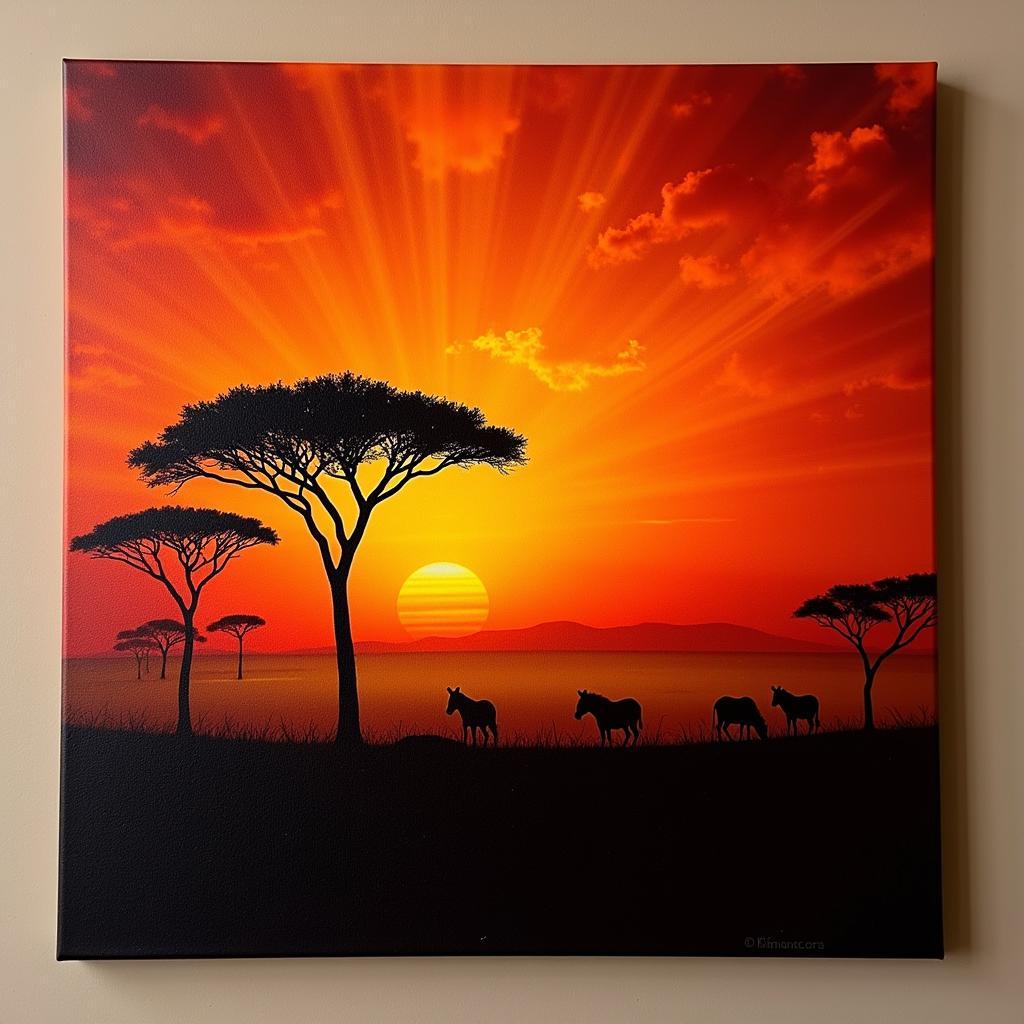African Bush Elephant: The Gentle Giants of the Savanna
The African bush elephant, scientifically known as Loxodonta africana, is an iconic symbol of the African wilderness. These majestic land animals are the largest living terrestrial mammals, captivating hearts with their sheer size, intelligence, and complex social structures.
 African Bush Elephant Family Group in Savannah
African Bush Elephant Family Group in Savannah
A Closer Look at the African Bush Elephant
Standing tall with their massive bodies, African bush elephants can reach heights of up to 3.96 meters (13 feet) at the shoulder and weigh up to 10.4 tonnes (11.5 short tons). Their most distinctive features are their large ears, which help regulate body temperature, and their long, flexible trunks. These versatile appendages serve multiple purposes, from breathing and smelling to trumpeting warnings and delicately picking up food.
The African bush elephant’s diet consists mainly of grasses, leaves, fruits, and bark. As herbivores, they play a crucial role in their ecosystem by dispersing seeds and creating clearings that allow for new growth.
Social Beings with Deep Family Ties
African bush elephants are highly social animals, living in herds led by a matriarch, typically the oldest and most experienced female. These herds can range in size from a few individuals to over a hundred, with females and their young forming the core of the group. Males, upon reaching maturity, often leave the herd to live solitary lives or form bachelor groups.
Communication within the herd is complex, involving a range of vocalizations, including rumbles, trumpets, and roars, as well as visual cues like ear flapping and head shaking. These interactions highlight the elephants’ intelligence and emotional depth.
Threats and Conservation Efforts
Despite their size and strength, African bush elephants face numerous threats, primarily from human activities. Habitat loss due to agriculture, mining, and human settlement is a significant concern. Poaching for ivory remains a persistent problem, despite international efforts to curb the illegal trade.
Conservation efforts are crucial to ensure the survival of these magnificent creatures. Numerous organizations and initiatives focus on protecting elephant habitats, combating poaching, and promoting human-wildlife coexistence.
FAQs about African Bush Elephants
1. How long do African bush elephants live?
African bush elephants have an average lifespan of 60-70 years in the wild.
2. What is the difference between African bush elephants and African forest elephants?
While closely related, African bush elephants are larger and have larger ears than their forest-dwelling counterparts. They also have different shaped tusks and slightly different social structures. You can read more about the weight of African forest elephants here.
3. Why are African bush elephants important to the ecosystem?
African bush elephants play a vital role in maintaining the balance of their ecosystem. They create clearings in the vegetation that benefit other species and their dung helps disperse seeds, contributing to the growth of new plants.
4. What can I do to help protect African bush elephants?
You can support reputable conservation organizations working to protect elephants, educate yourself and others about the threats they face, and advocate for responsible tourism practices.
Our Commitment to African Wildlife
The African bush elephant stands as a testament to the incredible diversity and wonder of the African continent. At African Life, we are dedicated to sharing captivating stories and insightful information about Africa’s wildlife. To learn more about other fascinating creatures like the African buffalo, one of the African buffalo deadly animals, explore our website and discover the magic of the animal kingdom. You can also discover more about African grazing animals in our comprehensive guide.
Need assistance or have questions about African wildlife? Contact us:
Phone Number: +255768904061
Email: kaka.mag@gmail.com
Address: Mbarali DC Mawindi, Kangaga, Tanzania.
Our dedicated customer support team is available 24/7 to assist you.



